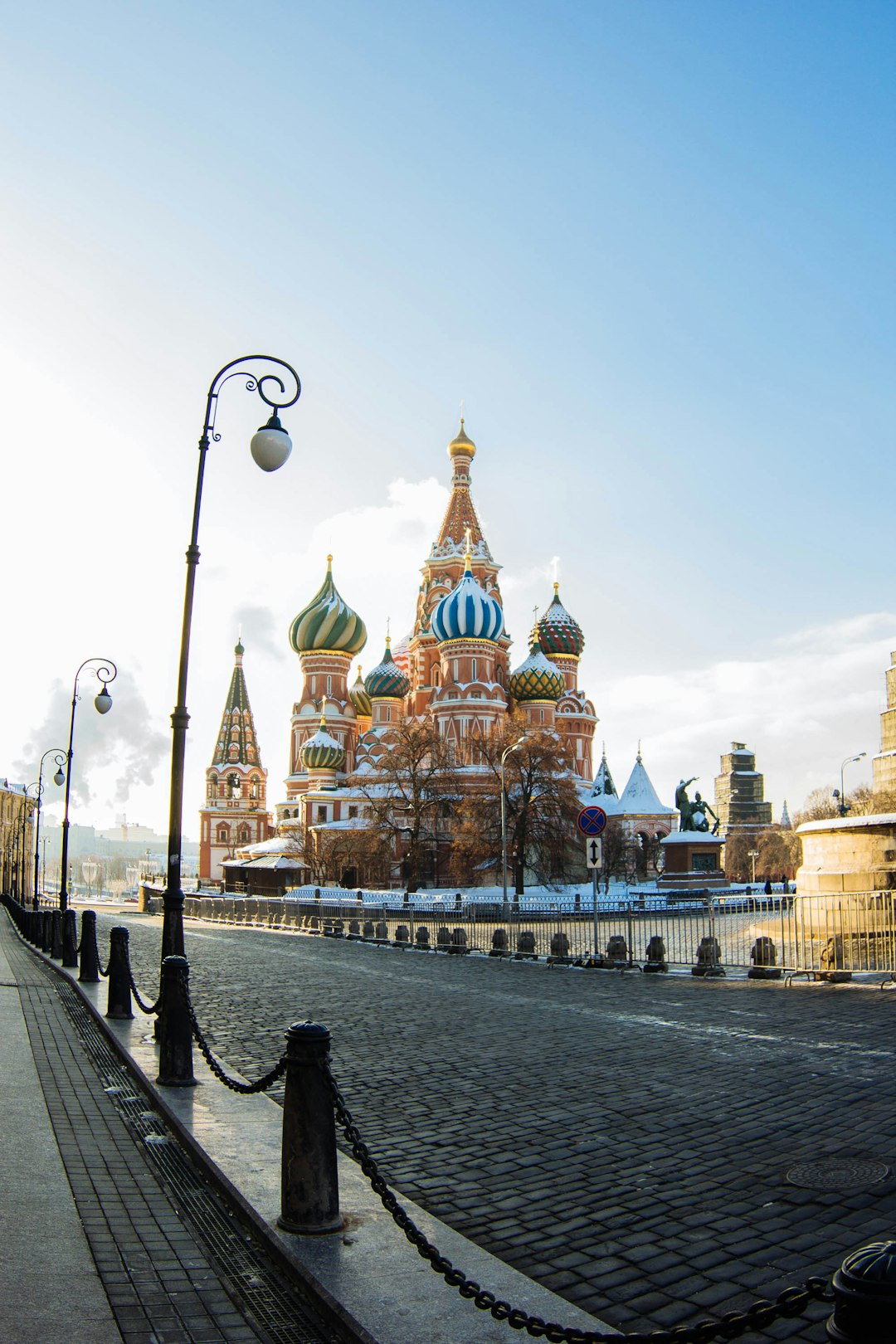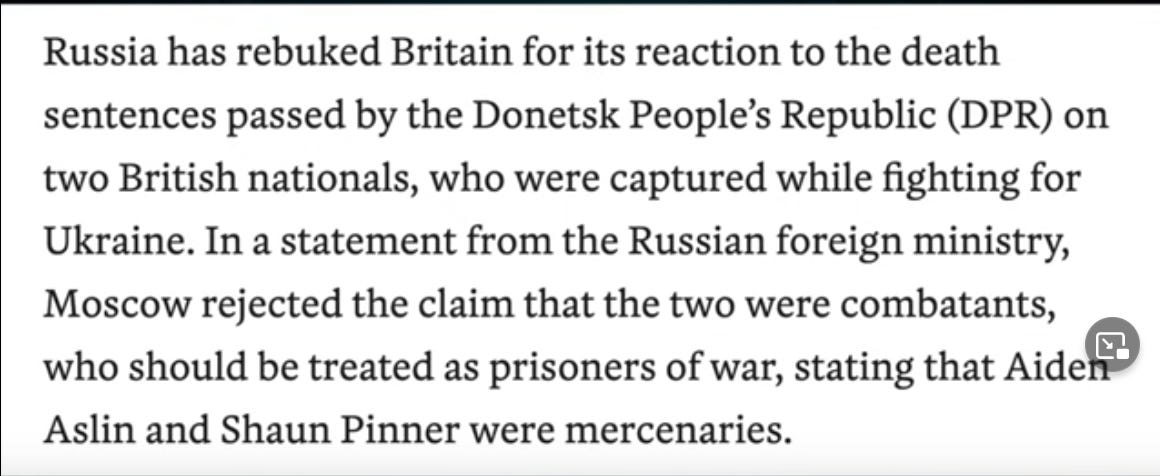Are Captured Mercenaries to be treated as Prisoners of War?
The Russian Ukraine battleground poses some interesting questions regarding the role of Mercenaries
If Foreign Mercenaries are captured by Russia are they to be treated as POWs? According to Russia, the answer is No. But according to Britain and the Bojo Crew the answer is Yes.
Some of these Mercenaries are going to Ukraine on their own, but others are ending up there believing the BBC propaganda campaign to vilify Russia and portray its DeNazification Campaign as equivalent to genocide.

Does it make a difference how the Mercenaries got there or is the rule simply that if they are a Mercenary going into a theater of war voluntarily then you should have known that Russia would not treat you as a POW and Mission Impossible style your government would disavow any knowledge of you?
In this case particular case with two British citizens being caught and now about to be executed in Russia, they went there on their own believing the BBC state sponsored pro Ukraine propaganda. Britain is trying to whine and complain for the release, but those two young men went there trying to be heroes and are now about to face a Russian firing squad. Britain has no case and they know it.
The two poor boys must have thought war was just like a video game where you just point and shoot and your enemies fall, but nothing really happens to you.
Well they found it rather quickly what was fantasy and what was reality. And now they facing a firing squad. Alex reports on this and other Russia Ukraine related matters with this update.
To answer the legal question are Captured Mercenaries to be treated as Prisoners of War? The answer according to Geneva Conventions that answer is No. And that is why the Boris Johnson Crew are crying foul.
Mercenary - Laws of War
See also: Laws of war, Privateer, Letter of marque, and Private military company
The Protocol Additional GC 1977 (APGC77) provides the most widely accepted international definition of a mercenary, though not endorsed by some countries, including the United States. The Protocol Additional to the Geneva Conventions of 12 August 1949, and relating to the Protection of Victims of International Armed Conflicts, (Protocol I), 8 June 1977 states:
Art 47. Mercenaries
1. A mercenary shall not have the right to be a combatant or a prisoner of war.
2. A mercenary is any person who: (a) is especially recruited locally or abroad in order to fight in an armed conflict; (b) does, in fact, take a direct part in the hostilities; (c) is motivated to take part in the hostilities essentially by the desire for private gain and, in fact, is promised, by or on behalf of a Party to the conflict, material compensation substantially in excess of that promised or paid to combatants of similar ranks and functions in the armed forces of that Party; (d) is neither a national of a Party to the conflict nor a resident of territory controlled by a Party to the conflict; (e) is not a member of the armed forces of a Party to the conflict; and (f) has not been sent by a State which is not a Party to the conflict on official duty as a member of its armed forces.
All the criteria (a – f) must be met, according to the Geneva Convention, for a combatant to be described as a mercenary.
According to the GC III, a captured soldier must be treated as a lawful combatant and, therefore, as a protected person with prisoner-of-war status until facing a competent tribunal (GC III Art 5). That tribunal, using criteria in APGC77 or some equivalent domestic law, may decide that the soldier is a mercenary. At that juncture, the mercenary soldier becomes an unlawful combatant but still must be "treated with humanity and, in case of trial, shall not be deprived of the rights of fair and regular trial", being still covered by GC IV Art 5. The only possible exception to GC IV Art 5 is when he is a national of the authority imprisoning him, in which case he would not be a mercenary soldier as defined in APGC77 Art 47.d.
If, after a regular trial, a captured soldier is found to be a mercenary, then he can expect treatment as a common criminal and may face execution. As mercenary soldiers may not qualify as PoWs, they cannot expect repatriation at war's end. The best known post-World War II example of this was on 28 June 1976 when, at the end of the Luanda Trial', an Angolan court sentenced three Britons and an American to death and nine other mercenaries to prison terms ranging from 16 to 30 years. The four mercenaries sentenced to death were shot by a firing squad on 10 July 1976.
Unless Britain is planning a Rambo like assault into Russia, then these two poor souls are about to make their Creator very soon. And the pattern is emerging that seems quite clear that Russia once again is defeating the Nazis.







